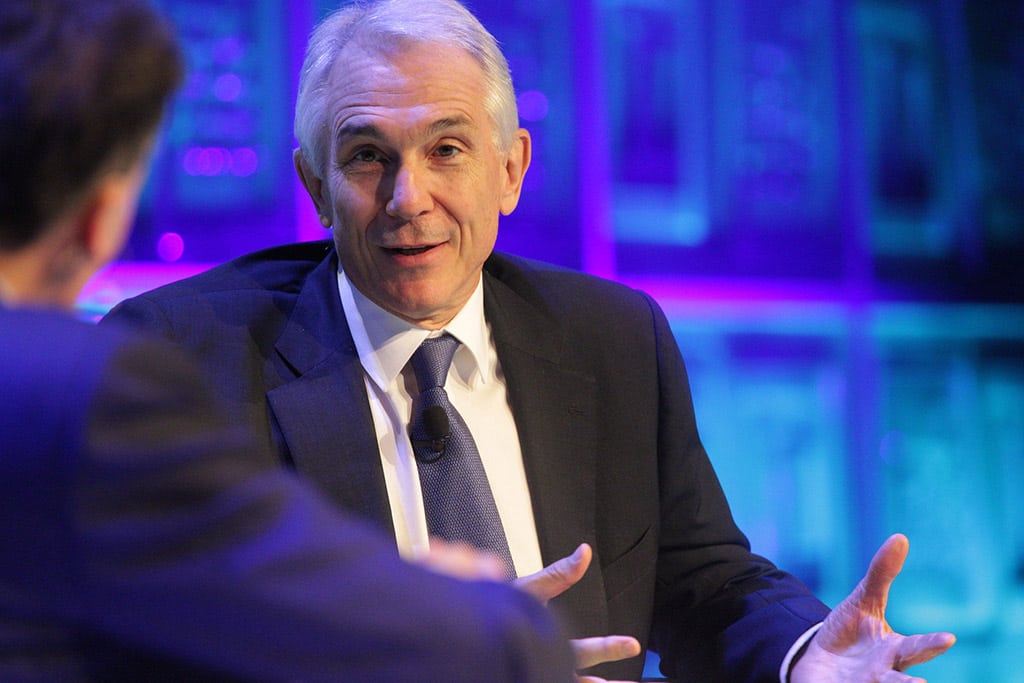Skift Take
Governments might argue that sustaining aviation is also a great infrastructural burden, and warrants a tax, but Tyler is absolutely right that without aviation our economies and our societies would be radically different.
During the CAPA Airlines in Transition conference in Dublin, we had an opportunity to sit with IATA Director General and CEO Tony Tyler for a candid conversation about the future prospects and challenges of the aviation industry.
The biggest challenge the industry has faced over its history has been maintaining stable profitability. As Tyler sees it, while the industry is currently performing well, it’s always under pressure from market conditions and unfavorable governmental policies.
“The challenge for airlines is to keep the revenues ahead of costs. That’s what it’s all about and that’s very difficult in a highly competitive industry where a lot of the costs are outside your control — whether it’s the fuel price or the interest rates, or costs effectively imposed on you like airport charges and so on. IATA plays a big role in trying to keep a lid on those,” Tyler said.
“But so much of it is outside your direct control. Yet your revenues are constantly under pressure from competition and from the state of the global economy,” he added.
“When the economy is doing well, it’s easier. You know, the rising tide lifts all ships. In the time we have now, with very uncertain prospects for the global economy, it’s particularly difficult. That’s the real challenge airlines are facing. You look underneath that to infrastructure shortages or inadequacies, over-regulation in some areas.”
Tyler clarified, “Safety should always be regulated, and regulated well. But there is some over regulation which is counterproductive, which some governments are too enthusiastic to impose. There’s too much taxation on the industry, which acts as a huge dampener on the ability of the industry to generate the economic growth that everybody wants.”
We asked why he believes those aviation taxes remain in place despite the challenges airlines have faced with profitability over the years.
“In some quarters it’s still seen as a luxury good,” Tyler said. “In Europe it’s almost like a sin tax imposed on airlines, because it’s such a naughty thing to do, like smoking and drinking. This is nonsense, of course. Aviation is a huge economic enabler for growth — not only economic growth but also social development. The fact that Europe has such a competitive and comprehensive aviation system now has helped shrink Europe. Now it’s not unusual for people from Spain to visit Scandinavia for the weekend. The level of understanding, of cultural comprehension that’s being driven by aviation is massive.”
But Tyler believes governments fail to see or disregard these benefits because airlines make funding the treasury easy.
“Frankly, we’re a very efficient tax collector. If a government says I want to collect $5 or €5 a passenger, it’s too easy and efficient a way to collect taxes. For treasuries, looking to raise cash, this is a very low-cost way to do it. Of course, it costs the airlines an enormous amount. It has a lot of other unfortunate impacts on fares. It reduces net yields. But for the treasury it looks like a win-win. What they don’t see is the economic damage they’re doing.”
We also asked Tyler what he believes the major trend will be driving aviation in the future. As he sees it, it will be about adjusting to today’s digital world and quickly adapting to new technology.
“The future is mobile,” he said. “We’re going to see people managing their travel needs and the services that they absorb and utilize from their mobile devices. Just as we are in every other walk of life. People are doing their shopping via mobile and they manage their social life via mobile. I think that’s where we’re going forward.”
Related to this, we asked Tyler how well he thought airlines had adapted to the rapid spread of information about airlines on social media.
“The smart airlines are already on top of it and responding quickly to what happens on social media and monitoring it,” Tyler said. “When there are incidents involving airlines operational disruptions or accidents, the speed of knowledge dissemination and information dissemination and communication has taken the industry by surprise at times. But we’re getting much better at it and airlines are very much aware that they need to respond. In the old days, the news would travel slower than the airline communication. Now it’s the other way round. Of course, social media turns the pressure on even more. But airlines are dealing with it. They’re having to learn, like other industries are, but this is the way of the world, isn’t it? “
The Daily Newsletter
Our daily coverage of the global travel industry. Written by editors and analysts from across Skift’s brands.
Have a confidential tip for Skift? Get in touch
Photo credit: Tony Tyler, Director General, IATA, speaking at the WTTC Global Summit 2015. World Travel and Tourism Council / Flickr
